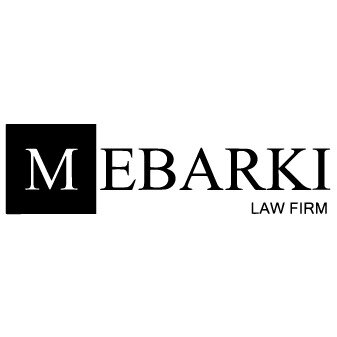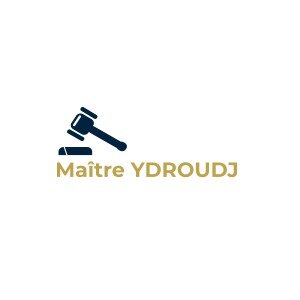Best Energy Regulatory Law Lawyers in Algiers
Share your needs with us, get contacted by law firms.
Free. Takes 2 min.
List of the best lawyers in Algiers, Algeria
About Energy Regulatory Law in Algiers, Algeria
Energy Regulatory Law in Algiers covers the legal framework governing the generation, transmission, distribution, and commercialization of energy resources including hydrocarbons (such as oil and natural gas), electricity, and renewable energy. The law also seeks to balance the interests of state, investors, and consumers, emphasizing the strategic significance of energy to Algeria’s economy. Many activities in the energy sector require government authorization or licensing and are closely monitored by both regulatory bodies and the Algerian legislature. With an economy largely driven by the oil and gas sector, energy regulation directly affects individuals, companies, and foreign investors operating within Algiers.
Why You May Need a Lawyer
There are several situations where legal support in Energy Regulatory Law is crucial. Common scenarios include negotiating and drafting energy contracts, applying for licenses or permits, resolving disputes between energy suppliers and consumers, engaging in mergers or acquisitions involving energy assets, navigating foreign investment legislation, dealing with regulatory compliance, responding to government audits, or appealing administrative decisions. A lawyer can help interpret complex regulations, represent your interests before governmental bodies, and prevent costly compliance mistakes in an evolving regulatory landscape.
Local Laws Overview
Algiers follows the Algerian legal system, which is heavily influenced by the country’s Hydrocarbons Law, Electricity and Gas Distribution Law, and regulations regarding renewable energies. Key institutions such as the Ministry of Energy and Mines and the Regulatory Authority for Hydrocarbons (ARH) play pivotal roles in enforcing these laws. The Hydrocarbons Law stipulates that the state, via its national company Sonatrach, must hold a majority interest in hydrocarbon projects. Specific regulations also govern environmental protection, tax obligations, land use, pricing, and access to infrastructure. Foreign investors often face additional requirements and must adhere to local partnership rules. Strict penalties apply for unauthorized activities or environmental non-compliance.
Frequently Asked Questions
What is the main regulatory body overseeing energy law in Algiers?
The main regulatory authority is the Ministry of Energy and Mines, alongside the Regulatory Authority for Hydrocarbons (ARH), which oversees licensing, regulation, and compliance for the energy sector.
Do I need a license to engage in energy production or distribution?
Yes, all entities involved in the production, distribution, or commercialization of energy resources must obtain the relevant licenses from government authorities before commencing operations.
How does the government regulate foreign investment in the energy sector?
Foreign investments are subject to local laws which typically require joint ventures with Algerian entities, where the state company Sonatrach holds at least a 51 percent share in hydrocarbon projects.
What legal recourse is available for resolving energy-related disputes?
Disputes among energy stakeholders can be resolved through negotiation, mediation, arbitration, or litigation in local courts, depending on the contractual terms and applicable law.
Are renewable energy projects treated differently in Algiers?
Yes, special incentives may be available for renewable energy projects but they are also subject to particular licensing and environmental requirements under dedicated regulations.
How is environmental compliance enforced?
Energy projects must undergo environmental impact assessments and comply with strict regulations to protect natural resources. Violations may result in fines, license withdrawals, or criminal sanctions.
What taxes apply to energy operations in Algiers?
Energy companies are subject to various taxes, including royalties, income taxes, and specific taxes for hydrocarbons based on production volume and pricing structures set by law.
Can a private company build and operate its own energy infrastructure?
Private entities may build and operate energy infrastructure, but must secure the appropriate authorizations and comply with relevant safety, technical, and environmental standards.
What role does Sonatrach play in the energy sector?
Sonatrach is the national oil and gas company, mandated by law to participate as a majority stakeholder in most hydrocarbon projects and exercise significant regulatory influence.
Are energy contracts freely negotiable?
While parties can negotiate contracts, certain provisions are regulated by statutory requirements to protect state interests, ensure fair pricing, and maintain compliance with Algerian law.
Additional Resources
- Ministry of Energy and Mines: Main authority for energy policy and regulation enforcement. - Regulatory Authority for Hydrocarbons (ARH): Licensing, oversight, and compliance body for the hydrocarbons sector. - Sonatrach: State-owned company, mandatory partner in hydrocarbon projects. - National Agency for the Promotion and Rationalization of Energy Use (APRUE): Focuses on energy efficiency and renewable energy projects. - Local law firms and legal professionals with expertise in energy law. - Official Gazette of Algeria for updated decrees and regulations.
Next Steps
If you require legal assistance in Energy Regulatory Law, begin by identifying the specific nature of your issue or planned activity. Gather relevant documents and details about your project or dispute. Consult with a licensed lawyer specializing in energy law in Algiers, preferably one with experience dealing with local regulatory authorities. You may contact the Bar Association of Algiers for referrals. A qualified lawyer can guide you through application processes, compliance issues, dispute resolution, and negotiations with state entities. It is advisable to act early in the process to avoid delays or legal challenges.
Lawzana helps you find the best lawyers and law firms in Algiers through a curated and pre-screened list of qualified legal professionals. Our platform offers rankings and detailed profiles of attorneys and law firms, allowing you to compare based on practice areas, including Energy Regulatory Law, experience, and client feedback.
Each profile includes a description of the firm's areas of practice, client reviews, team members and partners, year of establishment, spoken languages, office locations, contact information, social media presence, and any published articles or resources. Most firms on our platform speak English and are experienced in both local and international legal matters.
Get a quote from top-rated law firms in Algiers, Algeria — quickly, securely, and without unnecessary hassle.
Disclaimer:
The information provided on this page is for general informational purposes only and does not constitute legal advice. While we strive to ensure the accuracy and relevance of the content, legal information may change over time, and interpretations of the law can vary. You should always consult with a qualified legal professional for advice specific to your situation.
We disclaim all liability for actions taken or not taken based on the content of this page. If you believe any information is incorrect or outdated, please contact us, and we will review and update it where appropriate.











